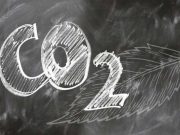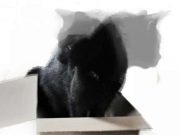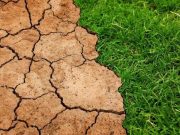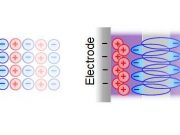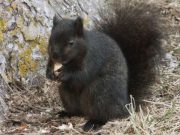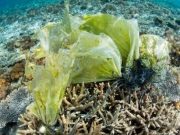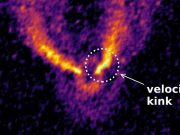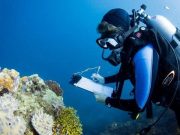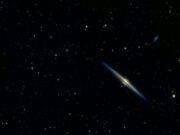Satellite study reveals that area emits one billion tonnes of carbon
A vast region of Africa affected by drought and changing land use emits as much carbon dioxide each year as 200 million cars, research...
Schrödinger’s cat with 20 qubits
Dead or alive, left-spinning or right-spinning—in the quantum world particles such as the famous analogy of Schrödinger's cat can be all these things at...
Study gauges trees’ potential to slow global warming in the future
Like the eponymous character in Shel Silverstein's classic children's tale, trees are generous with their gifts, cleaning the air we breathe and slowing the...
Supercapacitors turbocharged by laxatives
An international team of scientists, including a professor of chemistry from the University of Bristol, has worked out a way to improve energy storage...
Atomic ‘Trojan horse’ could inspire new generation of X-ray lasers and particle colliders
How do researchers explore nature on its most fundamental level? They build "supermicroscopes" that can resolve atomic and subatomic details. This won't work with...
Interbreeding turned grey squirrels black: study
Research published in the journal BMC Evolutionary Biology has shed new light on why some grey squirrels are black.
The study was led by Dr. Helen McRobie...
Study shows human impacts on oceans nearly doubled in recent decade, could double again...
Over the recent decade, total human impacts to the world's oceans have, on average, nearly doubled and could double again in the next decade...
Second baby planet found using pioneering technique
Monash astrophysicists using the ALMA telescope in Chile have a made a world-first discovery with the sighting of a second new 'baby' planet (two...
Largest-ever study of coral communities unlocks global solution to save reefs
The largest study ever conducted of its kind has identified where and how to save coral reef communities in the Indo-Pacific, according to an...
Diarrhea-causing bacteria adapted to spread in hospitals
Scientists have discovered that the gut-infecting bacterium Clostridium difficile is evolving into two separate species, with one group highly adapted to spread in hospitals. Researchers at...
A new timeline of Earth’s cataclysmic past
Earth's cataclysmic past is a fact. Welcome to the early solar system. Just after the planets formed more than 4.5 billion years ago, our...


